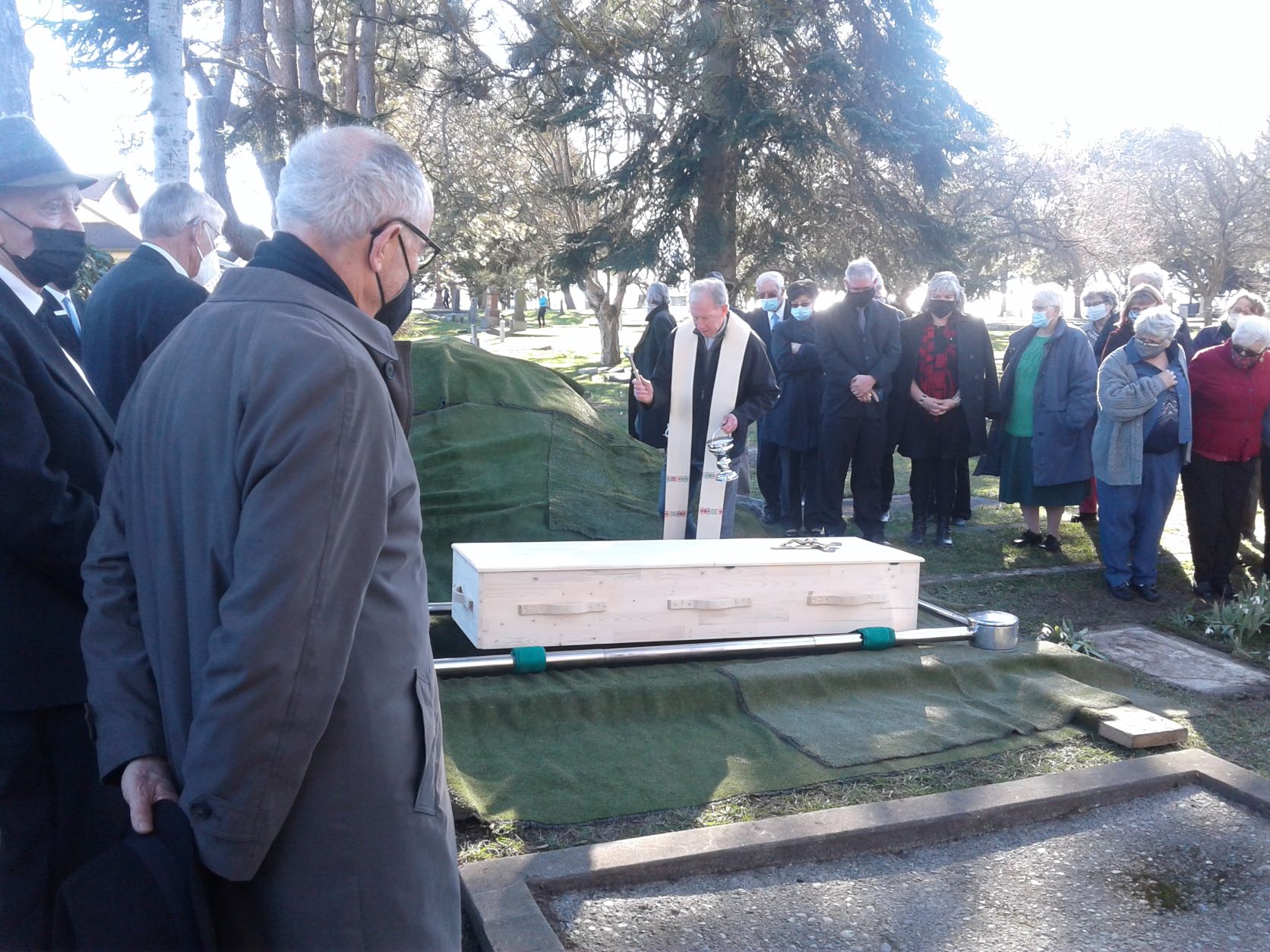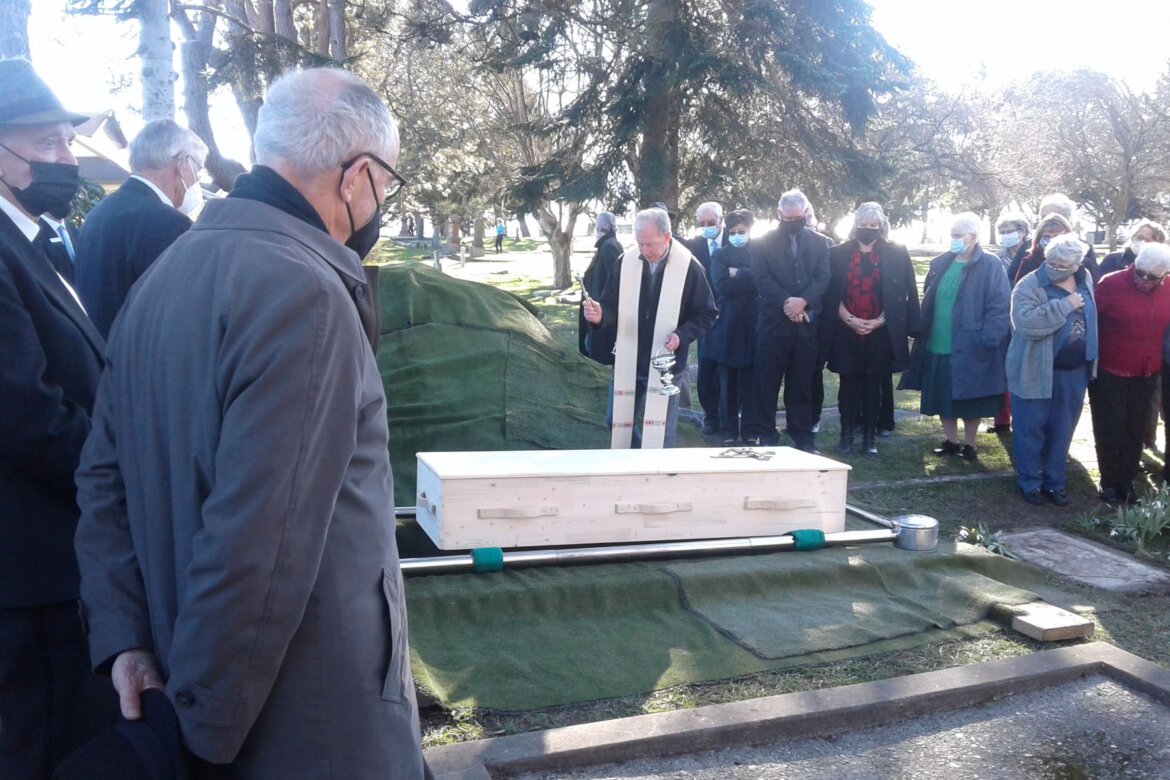Remi De Roo: Pilgrim of The Second Vatican Council
Cardinal Michael Czerny S.J.
Volume 37 Issue 1, 2 & 3 | Posted: April 1, 2022

I speak to you today as one who was fortunate to get to know Bishop Remi De Roo and be inspired and challenged by him. We knew each other through the second half of his long life. So I am speaking to you now about an admired friend. I also bring you the warm greetings of Pope Francis, who joins us in mourning and thanksgiving, and who sends his blessing.
Remi De Roo was 38 when Pope John XXIII made him a bishop in October 1962 – thus, the youngest bishop in the world, and the first sent to the Victoria diocese who was born in Western Canada. He attended all four sessions of Vatican II.
Remi came across as decisive, frank and even abrasive at times. He was also complex, controversial, and faithful to his convictions until the end. Above all he was a Council Father who dedicated the subsequent 60 years to continually rediscovering what it means to live as a Council Christian and as a Council Church … and now indeed as a Synodal Church.
Bishop Remi called himself “a pilgrim of the Second Vatican Council”. It decisively shaped both his unwavering vision and his lifelong mission. His conciliar conscience found expression in various directions, but above all became concrete in his constant habits of proximity and closeness, encounter and engagement.
He believed that the Church in Canada should divest itself of its instinctual suspicion of the modern world, and instead always seek to dialogue with contemporary culture, to accompany the path of ongoing cultural and social transformation, and to enlighten society with the “living substance” of the Gospel.
I believe that the following elements were key to Bishop Remi’s pastoral choices:
- The decision to visit the indigenous communities of his diocese, with whom he maintained a sincere bond of friendship throughout his life.
- His commitment to the promotion of social justice, which led him – as chairman of the Canadian bishops’ social justice committee – to question the political world about its social policies and the business community about its responsibilities.
- Encouraging lay people to become aware of their dignity as baptized persons and of the responsibilities they were called to play in the Church as protagonists of the apostolate, not merely as recipients of the proclamation.
- Promoting the role of women; rejecting the patriarchal models that confine them to subordinate positions and offend their human and baptismal dignity.
- Finally, the care given to ordained ministers who had chosen to leave the ministry. Against the stigmatization that made them reprobates and outcasts, Bishop Remi manifested a Church that knows how to be “mother” to all.
Bishop De Roo’s progressive stances and apostolic service were greatly appreciated by some and greatly disparaged by others. He remained constant in spite of a degree of marginalization and hostility, even within the Church. Difficulties of a different order arose in the administration of the goods of the diocese of Victoria. In response to the criticisms, a friend of his wrote a whole book about his “Vindication” with the sub-title “Political Sea-change in the Catholic Church”.
FAREWELL
What of us here, now? When confronted with the death of a life-long brother, let alone one of our senior elders, our faith in the Risen Lord spurs us to reflect on ourselves and to remember that Divine Judgment takes place in the here and now, in our daily decisions about Christ, with or without him, for or against him.
Our farewell for Bishop De Roo questions us about our adherence to the Lord Jesus who said “When I was hungry you gave me to eat”. We mustn’t just sit here. Let us review our lives on both the individual and ecclesial levels. Let us give thanks for Vatican II and align with its mission of evangelization. Let us recall:
- that above all, collegiality is made up of closeness, openness to dialogue, patience, and a cordial welcome that does not condemn.
- that belonging to the Church today is based more than ever on fidelity to the Council and on attention to the human heart, to community, to the common home, with ears and eyes attentive to the “signs of the times” that continually reveal the presence of the One to Come.
- that the rediscovery of synodality must inject new energy into every area of pastoral response: catechetics, liturgy, family, employment, justice, culture, social life, charity,…
Let us recall too that if we affiliate with elites instead of trusting in the Lord and opting for the poor; if we huddle for assurance within our own closed groups instead of going out to the existential peripheries; then we end up far from the people of God and outside of real communion with the Catholic Church.
It is time, the time is now, to reflect, meditate and pray on all these things, whether we are young in the Church or approaching 98 years of vigorous age. The words of Pope Francis two Sundays ago, to a group of lay people engaged in catechesis, are an excellent guide to this moment, this time:
“This is the time to be the artisans of open communities that know how to value the talents of each person.
- It is a time for free and disinterested missionary communities, which do not seek prominence and advantage, but rather walk the paths of the people of our time, stooping to tend to those on the margins.
- It is a time for communities that look disappointed young people in the eye, that welcome strangers and give hope to the disheartened.
- It is a time for communities that fearlessly engage in dialogue with those with different ideas.
- It is a time for communities that, like the Good Samaritan, know how to approach those wounded by life, to bind their wounds with compassion.”
The Holy Father could easily have had our beloved Bishop Remi in mind when, with a certain tough love, he spelled out these challenges. With the intercession of our beloved ancestor, let us – even with the risk of being, once in a while, just a little bit irritating – embrace them with firm resolve and inextinguishable hope! Amen.
Michael Czerny was inspired by Bishop De Roo in the 1970s. He coordinated a visit to Central America when the Bishop went on a fact-finding tour representing the Canadian Conference of Catholic Bishops as chair of their Social Affairs Commission.
Cardinal Michael Czerny S.J.

